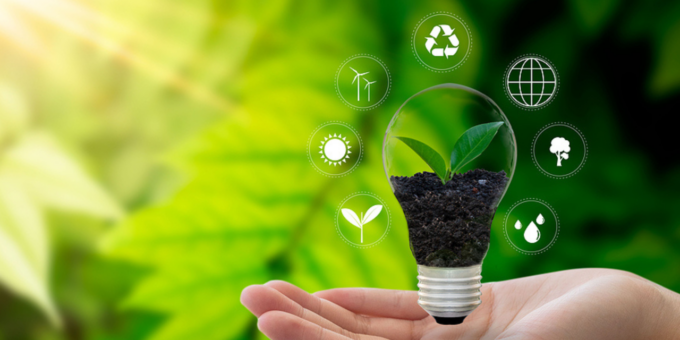
As the world increasingly faces the challenges of climate change and environmental degradation, the need for sustainable solutions has never been more critical. Eco-friendly technology innovations are emerging as essential tools to help reduce our carbon footprint and promote a greener future. This post will explore some of the most impactful eco-friendly tech innovations that you should know about, including solar chargers, smart thermostats, and electric vehicles.
- Solar Chargers
What They Are:
Solar chargers are portable devices that convert sunlight into electricity, allowing you to charge your electronic devices, such as smartphones and tablets, without relying on traditional power sources.
Why They Matter:
Solar chargers are a practical solution for reducing reliance on fossil fuels and minimizing electricity costs. They are particularly beneficial for outdoor enthusiasts, travelers, and anyone looking to reduce their carbon footprint.
Impact on the Environment:
By harnessing solar energy, solar chargers help decrease greenhouse gas emissions and promote the use of renewable energy. Many models are also designed with eco-friendly materials, further reducing their environmental impact.
- Smart Thermostats
What They Are:
Smart thermostats are advanced temperature control systems that learn your heating and cooling preferences and adjust accordingly. They can be controlled remotely via smartphone apps and often integrate with other smart home devices.
Why They Matter:
These devices can significantly improve energy efficiency in homes and businesses by optimizing heating and cooling schedules. This not only leads to reduced energy consumption but also lowers utility bills.
Impact on the Environment:
By using smart thermostats, users can reduce their energy usage, contributing to a decrease in fossil fuel consumption and greenhouse gas emissions. Many smart thermostats also provide energy consumption insights, empowering users to make more sustainable choices.
- Electric Vehicles (EVs)
What They Are:
Electric vehicles are powered by electricity rather than traditional gasoline or diesel engines. They come in various forms, including fully electric cars, hybrids, and plug-in hybrids.
Why They Matter:
EVs offer a cleaner alternative to conventional vehicles, helping to reduce air pollution and dependence on fossil fuels. They are increasingly becoming more affordable and practical for everyday use.
Impact on the Environment:
The widespread adoption of electric vehicles has the potential to significantly reduce greenhouse gas emissions from the transportation sector, one of the largest contributors to climate change. Additionally, as renewable energy sources become more prevalent, the environmental benefits of EVs will continue to grow.
- Energy-Efficient Appliances
What They Are:
Energy-efficient appliances are designed to consume less energy while performing the same tasks as their standard counterparts. They are labeled with ENERGY STAR ratings or similar certifications to indicate their efficiency.
Why They Matter:
These appliances can lead to substantial energy savings over time, reducing both utility bills and environmental impact.
Impact on the Environment:
By choosing energy-efficient appliances, consumers contribute to reduced energy consumption and lower carbon emissions. This shift is essential for achieving broader sustainability goals and combating climate change.
- Green Building Technologies
What They Are:
Green building technologies encompass various innovations aimed at creating sustainable, energy-efficient buildings. This includes everything from energy-efficient lighting and heating systems to green roofing and sustainable materials.
Why They Matter:
Green building practices not only enhance the sustainability of construction but also improve indoor air quality and occupant health.
Impact on the Environment:
By minimizing energy consumption and utilizing sustainable materials, green buildings significantly reduce their environmental impact. They contribute to a decrease in resource depletion and promote a healthier planet.
- Biodegradable Phone Cases
What They Are:
Biodegradable phone cases are made from sustainable materials that break down over time, unlike traditional plastic cases that contribute to landfill waste.
Why They Matter:
These cases offer a way to protect your phone without harming the environment when disposed of.
Impact on the Environment:
By choosing biodegradable options, consumers can help reduce plastic pollution and promote the use of eco-friendly materials in everyday products.
- Smart Water Monitors
What They Are:
Smart water monitors are devices that track water usage in real time and provide insights into consumption patterns. They can alert homeowners to leaks and inefficiencies.
Why They Matter:
These monitors help conserve water and can lead to significant cost savings on water bills.
Impact on the Environment:
By promoting water conservation and reducing waste, smart water monitors contribute to the sustainable management of this vital resource.
- Reusable Smart Bags
What They Are:
Reusable smart bags are eco-friendly alternatives to single-use plastic bags. Some models even feature built-in technology to track usage and promote sustainable shopping habits.
Why They Matter:
These bags help reduce plastic waste and encourage more sustainable shopping practices.
Impact on the Environment:
By decreasing the demand for single-use plastics, reusable smart bags help mitigate plastic pollution and promote environmental sustainability.
Conclusion
The rise of eco-friendly technology innovations is paving the way for a more sustainable future. By embracing solutions like solar chargers, smart thermostats, and electric vehicles, individuals and businesses can significantly reduce their environmental impact and contribute to a healthier planet. As technology continues to evolve, we can expect even more innovations that will help us address the pressing challenges of climate change and resource depletion. Making informed choices about the technologies we use is essential for fostering a sustainable world for future generations.
